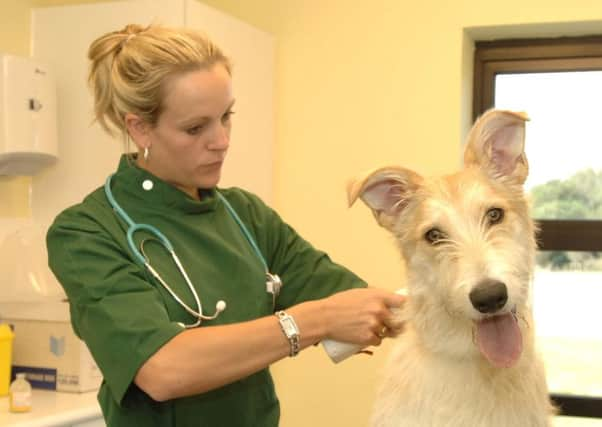Vets in Scotland need special training to report ‘animal abuse’


The reporting of animal abuse is not mandatory in the UK, with the study showing the average amount of time vets spend receiving special training on detecting and reporting cases was under two hours. Researchers say this training is essential if vets are to boost their confidence and skills to overcome fears around client confidentiality and loss of earnings.
A survey of 176 vets in the UK carried out by the British Veterinary Association found 32 per cent said they had seen a case of suspected animal abuse within the preceding 12 months, but only 25 vets had actually reported it to the authorities.
Advertisement
Hide AdAdvertisement
Hide AdCruelty to animals has been linked to abuse of people and other criminal behaviours, so vets have a crucial role in detecting cases, with the potential of preventing future crime, say researchers.
The survey aimed to find out what factors might influence vets’ ability to suspect and report animal abuse. These included “self-efficacy” – the skills and confidence needed – as well as experience and training on handling suspected abuse. Self efficacy has proven a key factor in teachers’ ability to report child abuse. Most of the respondents were women (71 per cent) and nearly all of them worked in a practice dedicated to pets (90 per cent). Years in practice ranged from one to 45, with the average being 14 years.
The researchers said: “With these findings in mind, it is unsurprising that animal abuse is such a difficult behaviour to prosecute and secure a conviction.”
Analysis of the vets’ responses showed all three of the studied factors influenced reporting behaviour, but self efficacy was associated with years in practice and the amount of special training received on how to pick up and handle animal abuse. And unlike years of practice and training, it was the only factor that was independently associated with reporting abuse and remained so, after taking account of the other factors.
Scottish SPCA chief veterinary officer Ian Futter said, “The Scottish SPCA has been a leading voice in highlighting the link between cruelty towards animals and violent behaviour towards humans.
“Vets can play a vital role in identifying potentially harmful signs and it’s important they are provided with the means and training to be able to confidently, and confidentially, raise concerns.”